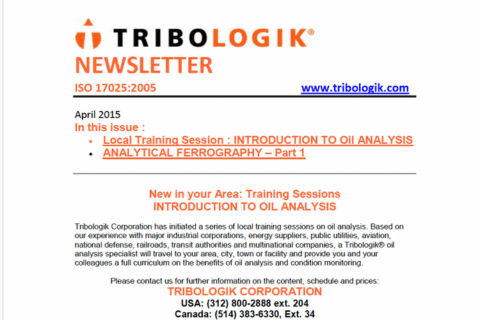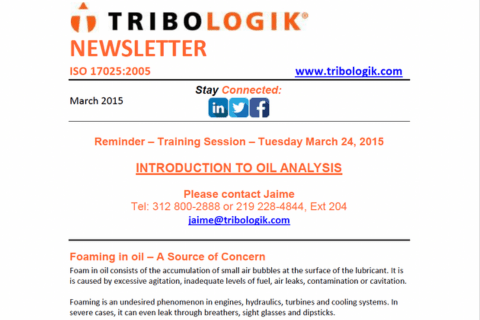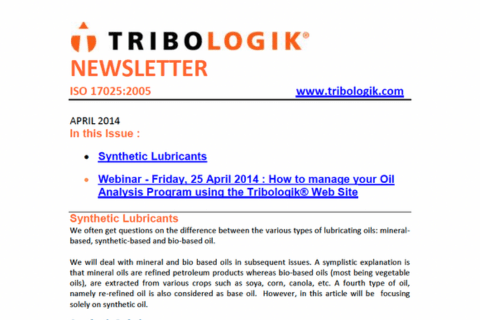April 2, 2015
Tribologik Corporation has initiated a series of local training sessions on oil analysis. Based on our experience with major industrial corporations, energy suppliers, public utilities, aviation, national defense, railroads, transit authorities and multinational companies, a Tribologik® oil analysis specialist will travel to your area, city, town or facility and provide you and your colleagues a full curriculum on the benefits of oil analysis and condition monitoring.





